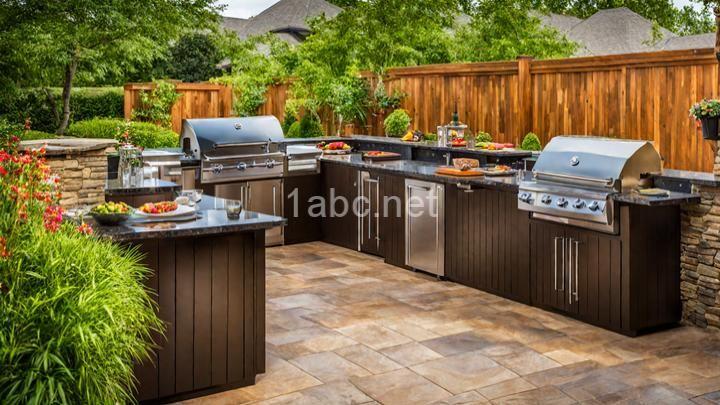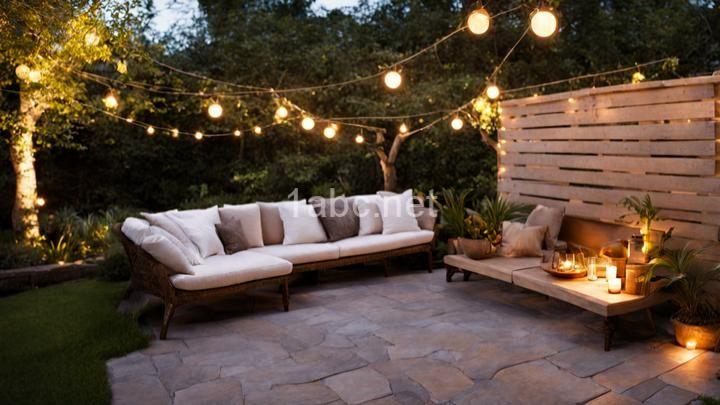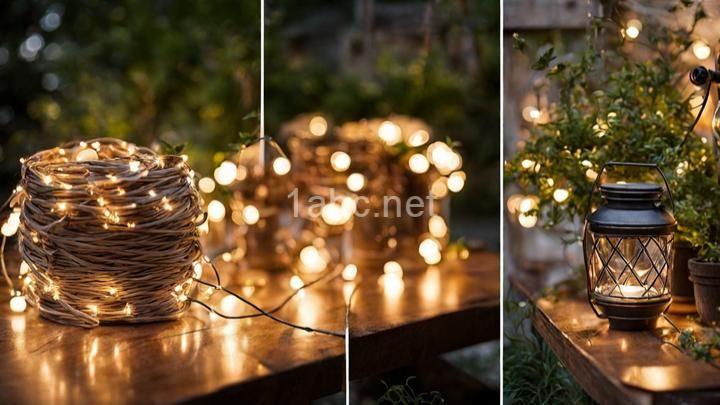Backyard Grilling Safety Tips: Keeping Your Outdoor Cooking Experience Accident-Free

Introduction:
Welcome, grill enthusiasts! Whether you're a seasoned grill master or just starting out, one thing we can all agree on is that backyard grilling is a beloved pastime. The sizzle of juicy steaks, the aroma of smoky barbecue, and the laughter shared with friends and family create unforgettable memories. But amidst all the fun, it's crucial to prioritize safety to ensure a fantastic and accident-free outdoor cooking experience. So, grab your apron and let's dive into some essential backyard grilling safety tips!
I. Preparing your grilling area:
A. Location and setup:
- Choose a level and stable location for your grill: The last thing you want is a wobbly grill that could topple over. Find a spot that provides a solid foundation for your grilling adventures.
- Keep the grill away from flammable objects, such as trees or buildings: Safety first! Maintaining a safe distance between your grill and potential fire hazards minimizes the risk of accidents.
- Ensure proper ventilation to prevent carbon monoxide buildup: Grilling in an enclosed space can lead to dangerous carbon monoxide buildup. Make sure you're in a well-ventilated area to keep the air clean and safe.
B. Cleaning and maintenance:
- Regularly clean your grill to remove grease buildup: Grease buildup not only affects the taste of your food but also poses a fire hazard. So, keep your grill shiny and clean to prevent any unexpected flare-ups.
- Check for any gas leaks or damaged parts before use: Before firing up your grill, give it a thorough inspection. Look out for gas leaks or any damaged parts that may compromise your safety.
- Keep a fire extinguisher nearby in case of emergencies: It's always better to be safe than sorry. Keep a fire extinguisher within reach to quickly and effectively tackle any unexpected flames.
II. Safe handling of propane and charcoal:
A. Propane grills:
- Always check for gas leaks using a soap-water solution before igniting: Gas leaks can be hazardous, so it's essential to check for them before getting your grill going. A simple soap-water solution can help you identify any leaks.
- Open the lid before lighting the grill to prevent gas buildup: Gas buildup can lead to unexpected flare-ups. By opening the lid before lighting the grill, you allow any accumulated gas to dissipate safely.
- Store propane tanks upright in a well-ventilated area: When not in use, make sure to store your propane tanks in an upright position in a well-ventilated area. This reduces the risk of gas leakage and potential accidents.
B. Charcoal grills:
- Choose quality charcoal briquettes without added chemicals: Opt for high-quality charcoal briquettes without any added chemicals. This ensures a clean and safe grilling experience.
- Use only approved starter fluid, avoiding gasoline or other flammable liquids: When lighting your charcoal grill, stick to approved starter fluids. Using gasoline or other flammable liquids can lead to unpredictable and dangerous flames.
- Allow ashes to cool completely before disposing of them in a metal container: After grilling, give the ashes ample time to cool down. Once they're no longer hot, dispose of them in a metal container to prevent any accidental fires.
III. Safe cooking practices:
A. Food preparation:
- Wash hands thoroughly before handling food: Cleanliness is key! Always wash your hands thoroughly before handling any food to prevent the spread of harmful bacteria.
- Separate raw meats from ready-to-eat foods to avoid cross-contamination: Avoid cross-contamination by keeping raw meats separate from ready-to-eat foods. This simple step helps prevent foodborne illnesses.
- Use separate cutting boards and utensils for different types of food: To further minimize the risk of cross-contamination, use separate cutting boards and utensils for different types of food. This helps maintain food safety and eliminates any potential health hazards.
B. Cooking procedures:
- Grate temperature: Preheat the grill properly according to recommended temperatures: Preheating your grill to the appropriate temperature ensures even cooking and reduces the risk of foodborne illnesses.
- Grilling time: Cook meat thoroughly but avoid overcooking, which can lead to dryness: Achieving that perfect balance between cooked and juicy can be a challenge. Cook your meat thoroughly to ensure it's safe to eat while avoiding overcooking and drying it out.
- Keep an eye on the grill at all times and use long-handled grilling tools to avoid burns: Grilling requires your full attention. Never leave a lit grill unattended and use long-handled grilling tools to keep a safe distance from the flames and avoid burns.
IV. Handling emergencies:
A. Fire safety:
- Know how to operate a fire extinguisher and keep one nearby: Familiarize yourself with the proper operation of a fire extinguisher and always have one within reach. In case of an emergency, you'll be prepared to handle it swiftly and effectively.
- Never leave a lit grill unattended: Grilling is an engaging activity, but it's crucial to always keep an eye on your grill. Leaving a lit grill unattended puts you and others at risk of accidents and potential fires.
- In case of grease flare-ups, close the lid and turn off the gas or move food away from the flames: Grease flare-ups can happen, even if you've followed all the safety precautions. If you encounter such a situation, close the lid to smother the flames or move the food away from the flames to prevent further flare-ups.
B. Burns and injuries:
- Have a first-aid kit readily available for minor burns or cuts: Accidents happen, but being prepared can make a significant difference. Keep a first-aid kit nearby to quickly address any minor burns or cuts.
- Cool any burn immediately with cold water for at least ten minutes: If you or someone else sustains a burn, cool the affected area with cold water for at least ten minutes. This helps alleviate pain and minimizes the severity of the burn.
- Seek medical attention for severe burns or injuries: For severe burns or injuries, it's crucial to seek medical attention immediately. Don't hesitate to reach out to medical professionals for proper treatment and care.
Conclusion:
Safety should always be the main ingredient in your backyard grilling adventures. By following these essential safety tips, you can ensure a fantastic and accident-free outdoor cooking experience. Remember, accidents can happen, but with the right precautions and preparedness, you can make your grilling sessions a safe and enjoyable affair. Thank you for joining us on this journey, and we invite you to explore more helpful content on our blog. Stay safe and happy grilling!
FREQUENTLY ASKED QUESTIONS
How can I ensure that my backyard grilling experience is safe?
To ensure that your backyard grilling experience is safe, there are a few key precautions you can take. First and foremost, always make sure to position your grill in a well-ventilated area, away from any flammable materials such as overhanging branches or dry grass. This helps minimize the risk of fire.Additionally, it's important to keep a close eye on your grill at all times while it's in use. Never leave it unattended, as this can lead to accidents or a potential fire hazard. It's also a good idea to have a fire extinguisher nearby, just in case.
When it comes to food safety, be sure to properly store and handle your raw meats. Keep them refrigerated until you're ready to grill, and avoid cross-contamination by using separate cutting boards and utensils for raw and cooked foods.
Furthermore, always use a food thermometer to ensure that your meats are cooked to the appropriate internal temperature. This helps prevent foodborne illnesses and ensures that your meals are both tasty and safe to eat.
Lastly, when you're finished grilling, allow your coals or propane to cool completely before disposing of them. Empty ashes into a metal container and keep it away from any combustible materials.
By following these safety guidelines, you can enjoy your backyard grilling experience with peace of mind, knowing that you've taken the necessary precautions to keep yourself, your loved ones, and your property safe. Happy grilling!
What are some common grilling hazards I should be aware of?
When it comes to grilling, there are a few common hazards that you should be aware of to ensure a safe and enjoyable experience. Here are some of the most important ones to keep in mind:
-
Fire hazards: Grilling involves open flames, so it's crucial to keep a close eye on your grill at all times. Make sure to keep flammable materials, such as paper towels or lighter fluid, away from the grill. Also, be cautious of any overhanging branches or structures that could catch fire.
-
Burns and injuries: The grill can get extremely hot, so it's important to use proper protective gear, such as oven mitts, when handling hot surfaces or utensils. Avoid wearing loose clothing that could catch fire and be careful when opening the grill lid to prevent steam burns.
-
Cross-contamination: To prevent foodborne illnesses, it's essential to handle raw meats, poultry, and seafood with care. Use separate utensils and cutting boards for raw and cooked foods to avoid cross-contamination. Also, make sure to cook meats thoroughly, reaching the recommended internal temperatures.
-
Gas leaks and explosions: If you're using a gas grill, regularly check for gas leaks by applying a solution of soapy water to the connections. If you see bubbles forming, there may be a leak. In such cases, turn off the gas immediately and have the grill inspected and repaired by a professional.
-
Carbon monoxide poisoning: Grilling in an enclosed space, such as a garage or covered patio, can lead to the buildup of carbon monoxide, a colorless and odorless gas that can be extremely dangerous. Always grill in a well-ventilated area to prevent carbon monoxide poisoning.
By being aware of these common grilling hazards and taking the necessary precautions, you can enjoy a safe and delicious grilling experience. Happy grilling!
What safety precautions should I take before starting the grill?
Before starting the grill, it is important to take certain safety precautions to ensure a safe and enjoyable grilling experience. Here are some key safety measures you should consider:
-
Location: Choose a well-ventilated outdoor area away from any flammable objects, structures, or low-hanging branches. Keep the grill on a stable and level surface to minimize the risk of tipping.
-
Clearance: Maintain a safe distance of at least 10 feet between the grill and any combustible materials, such as furniture, plants, or propane tanks. This helps prevent accidental fires or explosions.
-
Check for leaks: If you are using a propane grill, make sure to check for gas leaks before igniting the grill. Apply a soapy water solution to the gas connections and hoses. If you see bubbles forming, it indicates a leak. In such cases, turn off the gas immediately and have the grill inspected by a professional before using it.
-
Clean the grill: Before starting, clean your grill thoroughly to remove any built-up grease or food particles. This reduces the risk of flare-ups and potential fire hazards.
-
Proper clothing: Wear suitable attire when grilling, such as oven mitts and aprons, to protect yourself from burns. Avoid loose-fitting clothing that could accidentally catch fire.
-
Use long-handled tools: To avoid burns, use long-handled grilling utensils to handle hot food and adjust the grill grates. This keeps your hands at a safe distance from the heat source.
-
Keep a fire extinguisher nearby: Always have a fire extinguisher within easy reach in case of emergencies. Familiarize yourself with how to operate it properly beforehand.
-
Supervision: Never leave a lit grill unattended, especially when children or pets are around. Accidents can happen quickly, so it's important to stay vigilant at all times.
By following these safety precautions, you can minimize the risks associated with grilling and ensure a safe and enjoyable outdoor cooking experience. Happy grilling!
How can I prevent grease fires while grilling?
To prevent grease fires while grilling, there are a few important steps you can take. First and foremost, make sure to keep your grill clean and free of grease buildup. Regularly remove any excess grease or residue from the grates and trays.Additionally, it's crucial to keep a close eye on your grill while cooking. Never leave it unattended, as this increases the risk of a fire starting. If you need to step away momentarily, make sure to turn off the grill.
Another helpful tip is to avoid using too much oil or grease when cooking. Excess oil can drip down into the flames and ignite, so use it sparingly. It's also a good idea to trim any excess fat from your meat to reduce the amount of grease produced during grilling.
In case a grease fire does occur, it's important to know how to handle it safely. Never use water to extinguish a grease fire, as it can cause the flames to spread rapidly. Instead, use a fire extinguisher specifically designed for grease fires or cover the flames with a metal lid. If the fire becomes uncontrollable, call the fire department immediately.
By implementing these preventive measures and staying vigilant while grilling, you can significantly reduce the risk of grease fires and ensure a safe and enjoyable cooking experience. Happy grilling!


